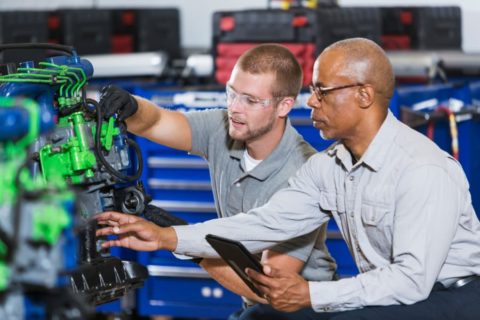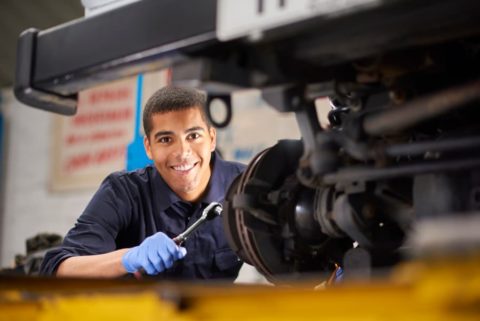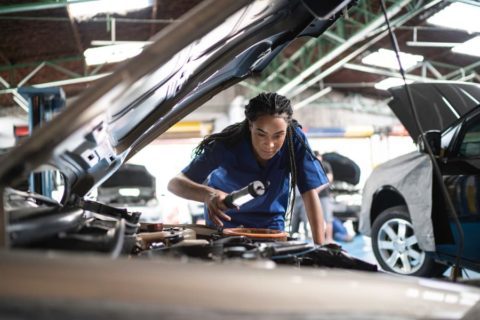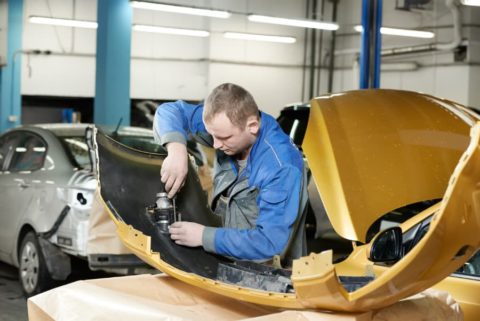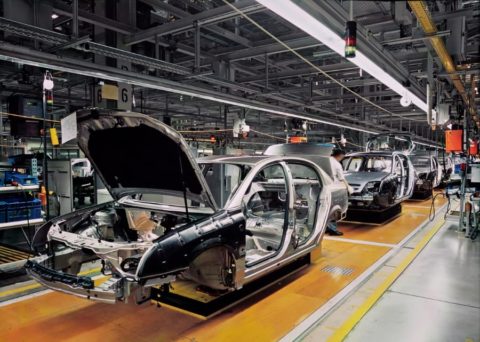4 Reasons Why a Technical College Is Right for You
Thinking about getting a college degree or certificate? If you’re looking to enter a specific field like the automotive industry, a technical college may be a good option for your needs. Technical colleges help students get the foundational education they need to enter their industry of choice, without the expensive price tag of a four-year degree at a private college. Here, NYADI The College of Transportation Technology, based in Jamaica, New York, outlines four of the top reasons why a technical college may be the right choice for you. 1. You
Why It’s Important to Get ASE Certified
If you’re looking into automotive school or already enrolled in a program, you may have heard of ASE certification. This professional certification is a clear way to communicate an automotive technician’s skills to customers – as well as future employers. Here, NYADI The College of Transportation Technology outlines some of the benefits of becoming certified. What Is ASE Certification? The National Institute for Automotive Service Excellence (ASE) was founded in 1972 to test and certify automotive professionals in the United States and Canada. ASE sets the standards of high-quality automotive service and
Starting Your Own Auto Repair Shop? Things You Should Know
If you’re passionate about automotive jobs and want the satisfaction of building your own business, starting an auto repair shop might be the right career path for you. As a business owner, you’ll wear many hats, and you’ll need to stay on top of managing employees and complying with laws and regulations, in addition to providing excellent automotive care. Here, NYADI The College of Transportation Technology, based in Jamaica, New York, outlines some key tips for starting your own repair shop. Review Local Licensing and Zoning Regulations If you’re planning to open
Promising Career Outlooks for Graduates of Our Programs
One of the most frequently asked questions prospective students have about NYADI The College of Transportation Technology relates to a very important consideration – the type of compensation they can expect in their careers after graduation. While salaries and benefits fluctuate depending on location, area of specialty, and experience level, our programs equip students with the education they need to thrive in rewarding automotive jobs in a secure, growing industry. Here, we describe what NYADI graduates can anticipate in their respective fields. Automotive Technology and Service Among the highest-paying jobs in the
Different Career Paths for Collision and Auto Body Repair Technicians
Collision and auto body repair technicians are trained to perform a wide range of tasks to ensure a vehicle is safe and structurally sound. Repair technicians may replace windshield glass, realign car frames, fix scratches or dents, or replace damaged vehicle parts. Individuals seeking an automotive collision repair career can find work in many different settings. Here, NYADI The College of Transportation Technology outlines some of the potential career paths that repair technicians can take. Collision Repair Technician Responsibilities Collision repair technicians play a critical role in keeping all motorists safe. Regardless
Cars of the Future: Impact of Electric Cars in the Automotive Industry
Looking back at the past century of innovation, we see how our world has tremendously changed with technological advances, the most crucial being the innovation of electric cars. Although it will be several years before they completely take hold of the market, their impact on various aspects of our society has already begun to be felt. Below, NYADI The College of Transportation Technology explores how the cars of the future are already revolutionizing the automotive industry. Automotive Technology and Design One of the sectors that electric vehicles will have the most influence
4 Types of Jobs in the Automotive Industry
If you love cars, enjoy working with your hands, and learning new technology, a job in the automotive industry may be the ideal career choice. The automotive industry offers opportunities in a wide variety of sectors, including maintenance, repair, design, development, sales, and customer service. If you are considering a career in the automotive industry, it's helpful to know some of the different positions available and their responsibilities. Here at NYADI The College of Transportation Technology, we can recommend four possible types of job. Automotive Mechanic The primary function of an automotive mechanic
Technology, Science & Ingenuity Salute To African American History Month
While pondering a theme for African American History Month, we at NYADI did a little research on Black Americans in technology and science. There was an impressive array of men and women from the 18th to the 21st centuries who were involved in practical inventions and basic mechanical processes that moved industries forward. Others were responsible for life-saving medical breakthroughs. There were too many to choose from. America owes much of its success as a world leader to the prominence of its people in industry and the trades. So many of our inventors and entrepreneurs
What Is An Eligible Career Pathway Program?
What exactly does “eligible career pathway” mean? One type of career pathway is a school to work program that leads to a sustainable career. A sustainable career is a job with growth potential in an industry that pays well and is hiring now and will be hiring into the future. The automotive repair and maintenance industry fits that description to a tee. Automobile sales are up and innovations in design and mechanical parts keep on coming. Since automotive technicians service cars and trucks at point of need, this is an industry
Future Cars: The Weird And The Wonderful
Cars of the Future The Tokyo auto show is displaying a collection of special edition and designer prototypes of some automobiles that combine the visions of James Bond, Star Trek and Austin Powers. Mod meets mad with these future cars! If you are in the mood for travel, the Tokyo Motor Show runs from October 29 to November 8. Check out the preview at: http://www.cnn.com/2015/10/15/autos/tokyo-motor-show-2015-preview/ That is some weird stuff! The industry is changing and changing fast. Car design, included technology, mechanical structures, highway interfaces and, even, fuel sources are all in flux. The

